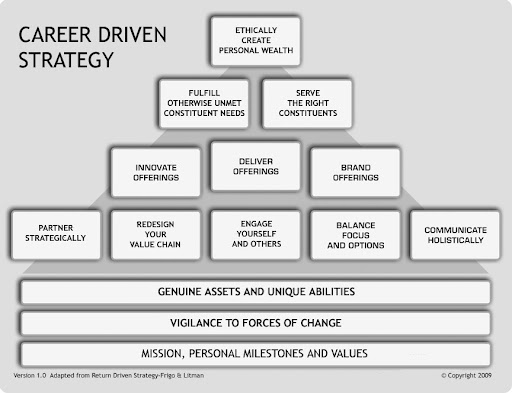Made in China… but funded by debt? Why you should read between the lines of China's economic report card.
|
|
| Let’s delve into China’s economic status for today. Keep reading to know what Professor Litman is saying about this topic. Made in China… but funded by debt? Why you should read between the lines of China's economic report card. There’s a saying in the investment world: “If something seems too steady to be real, it probably isn’t.” Lately, China’s economy has been testing the limits of that adage. In an in-depth analysis, Professor Joel Litman —Chairman and CEO of Valens Research and Chief Investment Officer of Altimetry Financial Research —issued a stark warning to investment professionals: The façade of China’s perpetual growth is cracking, and beneath it lies a troubling reality few are prepared to confront.
The Numbers Tell a Story—But Not the Whole One On paper, China ended 2024 on a strong note. According to official government data, the country’s GDP grew 5.4% in the fourth quarter—its fastest pace in six quarters—bringing the full-year growth to just under the predicted 4.9%. To the untrained eye, this might appear like a win. However, for Professor Litman and his team, the numbers raise more red flags than reasons to celebrate. According to Professor Litman, this is the weakest year for China’s economy since 1990, barring the exceptional circumstances of the pandemic. He also urged investors not to take the numbers at face value. For decades, analysts have scrutinized the reliability of China’s self-reported economic data. Even Beijing’s allies have quietly expressed skepticism, and independent organizations like Rhodium Group estimate that actual growth could be half of what was reported. For Professor Litman, this discrepancy is not only plausible but also expected , especially when one critical fact is taken into account: China’s real estate sector is in free fall. Professor Litman highlighted a foundational weakness in China’s economy: Its real estate sector , which accounts for nearly 24% of the nation’s GDP. For years, this sector has been artificially buoyed by excessive borrowing… but the structure began to crumble in 2021 when real estate giant Evergrande defaulted on its debts. Other major developers like Country Garden soon followed. The result? A cascading effect of defaults, debt tightening, and plummeting investor confidence! Real estate investment dropped by 10% year-over-year through November 2024—an alarming signal for an economy so dependent on the sector. Here’s the thing: The problem doesn’t stop with real estate. Professor Litman also drew attention to a sobering metric: Aggregate Uniform Return on Assets (ROA) for China’s major companies has been hovering between 5% and 6% for over a decade—roughly equivalent to the country’s cost of capital.
In simple terms, China is barely breaking even. This status means businesses aren’t generating excess returns that they can reinvest in innovation, growth, or debt reduction. … and take note: It’s not a short-term slump; it’s a decade-long pattern that suggests deeper structural stagnation. According to Professor Litman, even if China’s reported GDP numbers were accurate, they are masking the deeper issue of systemic inefficiency and capital misallocation. The Debt Trap is Closing Professor Litman believes the Chinese economy is stuck in a dangerous loop: It doesn’t generate enough cash internally, so it leans on debt. The thing is, the more it borrows, the less effective that debt becomes in producing real economic value. This debt-dependency is becoming harder to sustain as global interest rates remain elevated and investor confidence wanes. China’s companies, especially in real estate, are finding it increasingly difficult to access new capital… and unlike a robust, cash-rich economy that can absorb shocks, China is treading a fine line—one that could lead to a broader financial crisis. What’s more? As if internal issues weren’t enough, external pressures are piling on. With Donald Trump returning to the U.S. presidency, his administration is expected to impose new tariffs on Chinese goods. Professor Litman noted that this will directly threaten China’s export-dependent economy and potentially spark a new wave of trade disruption. Simply said: China’s three-year streak of population decline + declining real estate investment + now growing geopolitical isolation = A perfect storm! A Cautionary Tale for Global Investors Professor Litman’s message to investment professionals is clear: Don’t get distracted by the illusion of stability. Whether or not China’s reported growth is accurate, the warning signs are impossible to ignore. Population decline, capital-starved companies, and a collapsing real estate sector are not the hallmarks of a thriving economy. When these factors are propped up by unreliable data and opaque governance, investors should proceed with extreme caution. It’s wise to ask this question: “If you wouldn’t invest in a company that’s losing cash and can’t reinvest in itself, why would you invest in an entire country doing the same?” — Professor Litman’s insights offer a sobering yet vital perspective for investors navigating today’s uncertain markets. After all, in a world captivated by the promise of emerging markets and fast-growing economies, it’s easy to be lured by optimistic projections. However, as Professor Litman underscores, the true health of an economy lies not in its headlines but in its ability to sustainably create value. … and in the case of China, that value may be slipping further out of reach. Hope you’ve found this week’s insights interesting and helpful. EXCITING NEWS AHEAD The world of work has shifted, and there’s no going back. The barriers to entry have never been lower for talented professionals to work independently, and today’s massive external workforce is hardly a pandemic-produced fad. Business owners can only survive in the new work landscape by partnering with this deep talent pool. With decades of experience in both small-business entrepreneurship and executive management at PwC, I truly believe that the future of work is independent. With that, I’m happy to share with you that my book, co-authored with Walter Scott Lamb, is now available on Amazon! Free Birds Revolution: The Future of Work & The Independent Mind This new bestseller is an essential read for both independent professionals and corporate executives. Here, we provide educational and practical guides to unpack the ever-growing workforce and offer you crucial ways to become a client of choice. Click on the link above to order your copy. Let this bestselling book help you future-proof your career and organization in the new world of work. Stay tuned for next Wednesday’s The Independent Investor! The private credit market has grown tremendously over the past several years. However, this doesn’t mean that it isn’t a powder keg that’s waiting to explode. Learn more about the private credit powder keg in next week’s article! |

Miles Everson
CEO of MBO Partners and former Global Advisory and Consulting CEO at PwC, Everson has worked with many of the world's largest and most prominent organizations, specializing in executive management. He helps companies balance growth, reduce risk, maximize return, and excel in strategic business priorities.
He is a sought-after public speaker and contributor and has been a case study for success from Harvard Business School.
Everson is a Certified Public Accountant, a member of the American Institute of Certified Public Accountants and Minnesota Society of Certified Public Accountants. He graduated from St. Cloud State University with a B.S. in Accounting.




